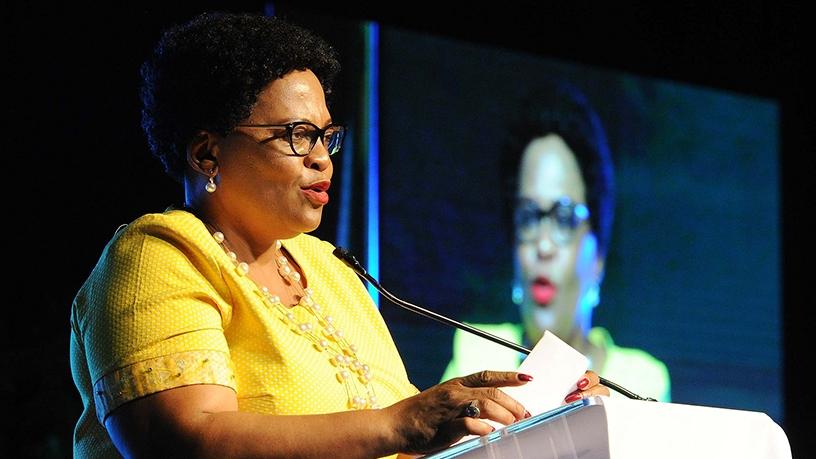
To ensure government speeds up the switch from analogue to digital terrestrial television (DTT), additional partnerships with industry players are required.
So said Department of Communications (DOC) minister Nomvula Mokonyane, affirming that lack of collaboration has, to some extent, contributed to SA's inability to meet the deadline set by the International Telecommunication Union (ITU).
Mokonyane made the comments at the government-led colloquium in the Free State yesterday. The colloquium's objective is to explore opportunities for the private sector, industry and local government to assist the DOC to fast-track analogue switch-off in the province.
After missing the 2015 ITU deadline, the DOC, which is in charge of the digital migration programme, has this year ramped up efforts to get the project back on track.
Among these is the adoption of a revised model to roll out the much-delayed project. This sees government abandon procurement of set-top-boxes, warehousing, transportation and installation of devices in favour of a market- or retail-driven approach through cooperation with the private sector and industry.
According to Mokonyane, the delay is a grave concern. However, if government and industry work together to implement and provide necessary equipment and infrastructure, the July 2020 analogue switch-off deadline might be within reach, she noted.
"All of us here today have a central role to play in unlocking the digital frontier. From day one, our objectives with regards to digital migration were aligned to those of the National Development Plan."
She noted successful migration will empower government to bridge the digital divide, increase the competitiveness of the economy, create jobs and build social cohesion.
"Digital migration and ensuing digital revolution will truly be a game-changer. The full implementation of the project will unlock valuable spectrum, which can be used by government and the industry to drive the fourth industrial revolution.
"It will also bring with it greater benefits for content development, especially locally produced and relevant content. The rollout of the programme will be an enabler for the revitalisation of the electronic manufacturing industry and broadcast content generation."
With the Free State province earmarked as the first to be switched off by 31 December, the DOC says this will unlock opportunities for citizens and businesses in the province.
Premier Sisi Ntombela believes the revised delivery model promotes inclusive participation and creates an environment for private sector and industry collaboration.
While she is proud the Free State will be the first to have its analogue signal switched off, Ntombela warned this comes with great responsibility for all of them, including state-owned entities, various government departments and stakeholders.
"We need to ask ourselves: how do we collectively ensure the switch from analogue to digital is a smooth one, but most importantly, how do we ensure it contributes to the betterment of our people, the relentless fight against poverty and unemployment in the province.
"If we have answered these critical questions, then we will achieve our goal of a seamless process of migration from analogue to digital. We will boast to be a worthy benchmark for other provinces."
There is an estimated 14 million television-owning households in the country, noted Mokonyane. This means an estimated 8.8 million already own digital satellite decoders and are considered to have migrated to the digital platform, she concluded.
Share